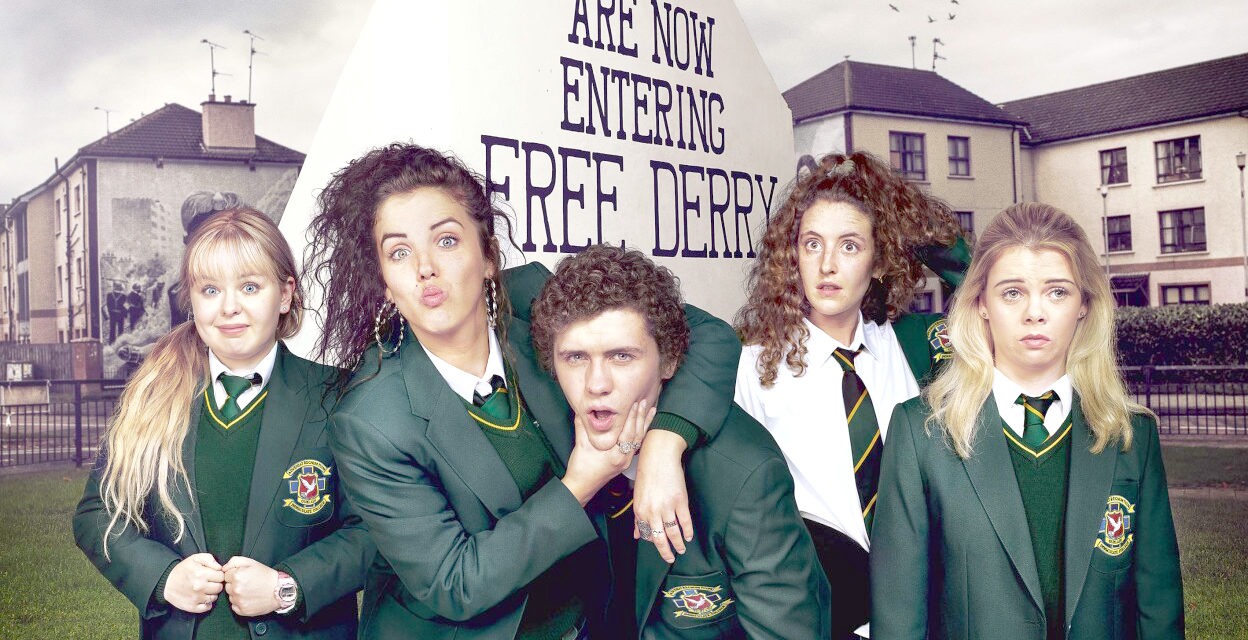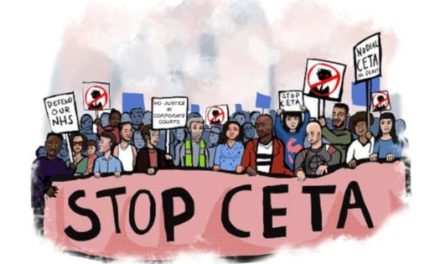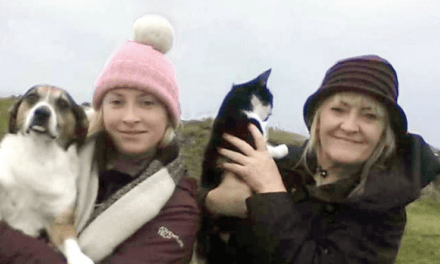“When you’re meeting a young person for the first time and they perceive adults as something not to trust, humour can be a great tool.”
Cork teenager Cai Desmond-Sadd interviews Derry youth worker Fergal Barr who is campaigning to have humour recognised as a valid tool for engaging young people.
- For anyone unaware, what exactly do you do in a nutshell?
“I’m a youth worker by profession, and also by trade – I see them as two different things. I currently work for one of the councils in Northern Ireland as a community development worker.
“Outside of that, I do other things such as freelance with Youth Work Ireland in Tipperary and I also organise humour festivals from time to time,” he said.
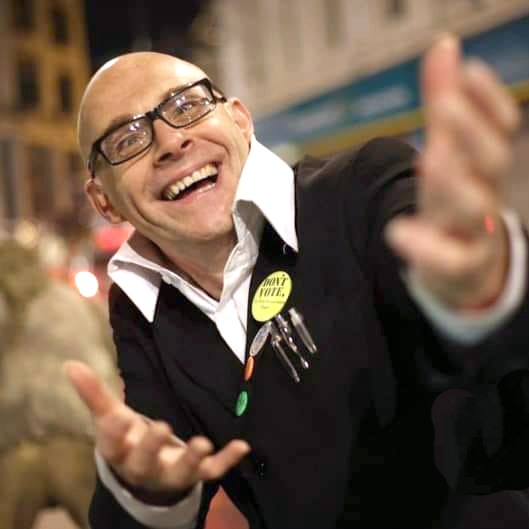
• Fergal Barr at work.
- What do you hope to achieve through your work?
“The one art form that is missing from youth work is humour. Every other art form is recognised, whether it’s dance, poetry, music or art through brush or pencil. Humour is missing because it’s such a natural phenomenon. People laugh and joke, but they don’t think about it being a skill that you can actually learn.”
“It’s not about teaching people to be comedians. I don’t want this to be confused with that. It’s about using humour as a medium to engage people and transform situations,” he said.
- When did you start this work?
“Humour has always been a part of my life. From the minute I left the womb until now, humour has featured.
“But to give it a starting point, back in July 2007, as part of an open space conference I met with some people to discuss humour as an actual means of engaging young people.
“A year later, we organised a feasibility meeting and then, long-story-short, the first humour training programme was held was in October 2012, followed by others in 2014 and 2018.”
The next Humour Training Programme is actually scheduled for this November.”
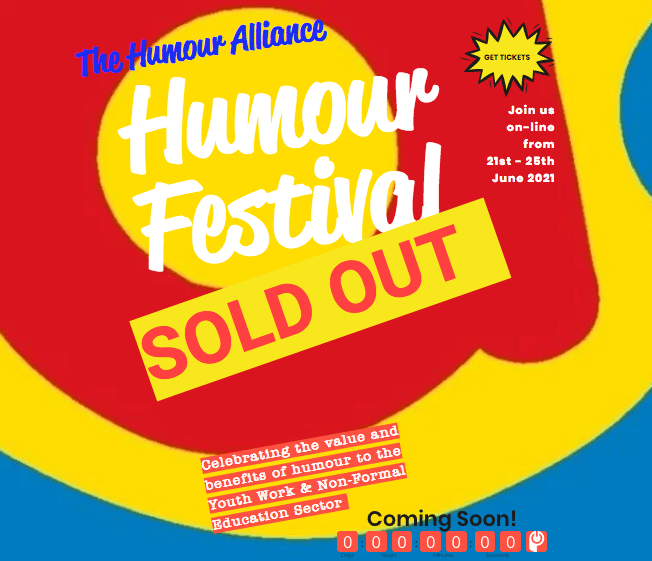
- Can you tell me a bit about the latest Humour Festival (held in June)?
“I decided to organise an event for practitioners who share an interest in the use of humour. One of my frustrations in youth work and trying to bring humour into it is the fact that a lot of people just don’t get it.
“We wanted to create something that would help increase awareness of the importance of humour and to help people learn some techniques about how they can use it in their work setting.
“What started as an idea of one half day event turned into a five-day festival of activity. We had 15 practitioners from 11 countries who used everything from simply a sense of humour in their work to clown therapy and stand-up. Each day had a theme and there were 26 events,” he said.
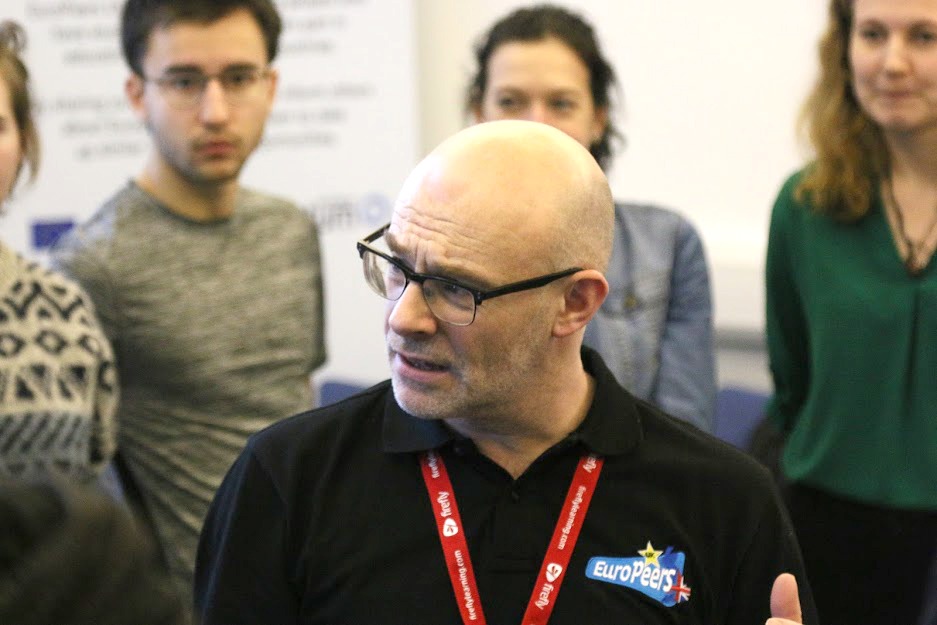
• Fergal working with young people in Derry.
- I read on the line-up for this festival that one of the main theories involved with humour is Incongruity Theory. Could you explain that for me?
“There’s actually a joke to explain it: Incongruity theory, it’s not what you’d expect. If you ever hear a comedian tell a joke where they build up to something and you have a certain expectation, but what you get is completely different – that’s incongruity theory. It’s probably the strongest theory that underpins humour and comedians use it all the time.”
- Youth work is generally seen to be quite a serious field. Would you agree?
“Youth work is seen to be less serious than social work, but that doesn’t mean it isn’t serious. You can support a young person, and change their life because you intervened at a moment which ended up being life changing for them.
“Youth workers are serious about what they do, they want to support young people, they want to care for them and see them progress and develop as a human being,” he said.
- How is your work trying to change this perception of youth work?
“By holding humour festivals and a humour training programme called ‘Humour is Serious Business’.
“I’m also doing some work with one of the health trusts here in the North, bringing recognition to humour as a means of promoting wellbeing. It’s one of the most natural resources we have as humans. Humour is the shortest distance between people, after all,” he said.
https://www.changingireland.ie/?p=251282&preview=true
- Could you give an example of how your use of humour has helped a situation relating to your work?
“When you’re meeting a young person for the first time and they’re a bit nervous about meeting another adult, because maybe they perceive adults as something not to trust, humour can be a great tool.
“By showing that you can be funny and are prepared to laugh at yourself, you break down barriers and nurture a rapport. As a youth worker, you need to show the young person that you are not like a lot of the other adults they experience in their daily lives.”
- What is the fine line in the usage of humour?
“The fine line is really when a person is no longer part of the joke, but instead the target of it.
He warned against making fun of a person.
“Essentially, you need to have the consent of the person that you’re sharing humour with. I don’t mean that you must get written consent, where you might send them an email and say, ‘Before I crack this joke with you, do you mind if I get written consent from you?’ No, it’s all about the relationship between you and the person you’re sharing humour with.”
- There are obviously cultural differences in humour. Can you talk about how this affects your work?
“Particularly in Northern Ireland, we have a dark sense of humour. One of the ways people in the North have often dealt with the trauma of The Troubles is by their humour.
“Not everyone understands this, so if you go to another part of the world, and you start to use this type of humour, people mightn’t appreciate it. If you use sarcasm with people from other countries, they might think you’re being serious,” he said.
- What advice would you give for anyone reading this who thinks they are “not funny”?
“Everybody has a sense of humour, and humour is not comedy. Comedy is just one form of humour.
“So you could be sitting in a cafe and you see a child giggling. Nobody can look at a giggling child and say it doesn’t make them feel a little bit different. The child isn’t telling a joke, they’re not trying to be sarcastic – they’re just having fun.
“There’s nobody on planet earth that hasn’t laughed, hasn’t smiled, hasn’t tried to tell a funny story or hasn’t thought about something funny. Humour is ever present – it’s in our DNA.”
- What got you interested in youth work in the first place?
“I fell into youth work by complete accident. I was in the job queue after I left school, outside the job centre in Derry, and somebody told me about a youth project,” recalled Fergal.
He went along and it introduced him to group work methods and learning how to interact and relate to people and so on.
About 17 months later he moved to providing youth information and his role evolved. Gradually, he realised he was actually doing youth work, so he went to university to become a professional youth worker.
“I was on a kind of seven-year journey, my apprenticeship as I like to call it.”

